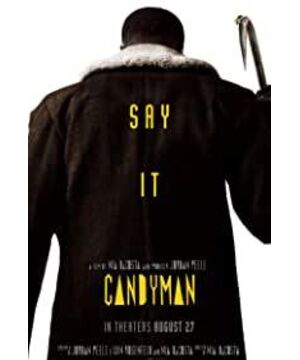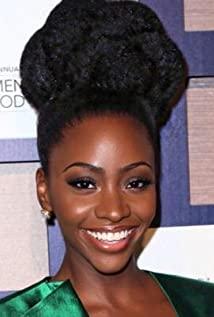I really like the two sentences that are interspersed from the beginning to the end of these two films.
They present the core idea, are quite entertaining, and are multilingual.
Episode 1:
It was always you, Helen
It has two meanings:
1. It's always just you (helen) killing people, never a candyman. Because of the discovery of her husband's infidelity, academic pressure, and the investigation of folklore (mysticism), the whole person began to become obsessed with magic, and finally went crazy.
2. You (helen) always killed me (candyman). In 1800, the black and white love was discovered. Candyman was chased by white people. You are the source of sin. And you, helen, represent white people, and I, candyman, represent black people.
Episode 2:
Say my name
It has three meanings:
1. "Say my name" given the original nature of the artwork - candy man
2. Say my name - Anthony is the baby that year, he is the successor of candyman. It's also the black and white child hundreds of years ago, and Helen is the reincarnation of the white woman who used to be
3. Say my name - who am I, the abuser? is the victim? I am candyman, a collective spiritual symbol born out of the black community, but a force of evil that feeds on anyone's fears. (It was said in the first episode that he was born with faith and raised with fear.)
Actually candyman is not a hero, never has been.
He is just a fear born out of violence and injustice.
Blacks were afraid of him, and whites were afraid of him.
candyman doesn't just kill white people, he kills black people too.
The black owner of the laundry shop saved his life because he was pushed out by two other little friends when they were playing the candyman game when he was a child.
And in the first episode, the black (human) shaman who inherited candyman and wants to rule others, he is a triad. Who can he scare? It can only be the same kind and the same clan who live in the same slum. At that time, the police didn't care about such "depraved", "dirty" and "poor" people, and they were rampant and domineering.
Black on black crime is about black people killing black people or black people committing violence to black people, which happens more statistically than white people killing black people (such as police killings).
This proves that candyman never kills people regardless of skin color.
It itself represents anger, revenge, fear and violence.
It's just evil.
It wants to use people, and it wants people to use it, so that it can continue.
But just because his image is black and the historical source is black, so he represents black people?
But this is also the embarrassment of the black community.
In terms of real society, black people don't want to be represented by those gangsters who roam the streets, gangsters who love to steal and rob, and even murderers.
But when they live well and bully them because of the racism that other people do to them, they have to use those negative forces/labels to protect themselves.
Let others be afraid of you, and maybe you can live an extra day in the face of injustice in the real world.
They don't commit violence themselves, but they don't mind spreading the word, scaring other people (especially white people) to get shelter.
Fear, but symbiosis.
And the day candyman disappears is the day racism disappears.
The civil rights movement of black people has a long way to go. Many times, it is really white people who give candy, and many things are smoothed out.
Think about the story about the blade stuffed in the sugar, and that's what happened.
In the end, they killed the suspect, Shaman, on the spot, but the candy with the blade was still spreading.
The relationship between black and white is both sugar and blade. Both victims and perpetrators.
It's always been you, helen, that helen, who is it, the white man, the perpetrator? Or a victim?
What is my name, is it candyman, is it shaman, is it anthony, is it black, or even helen, is it white? Is the abuser? Still a victim!
View more about Candyman reviews











